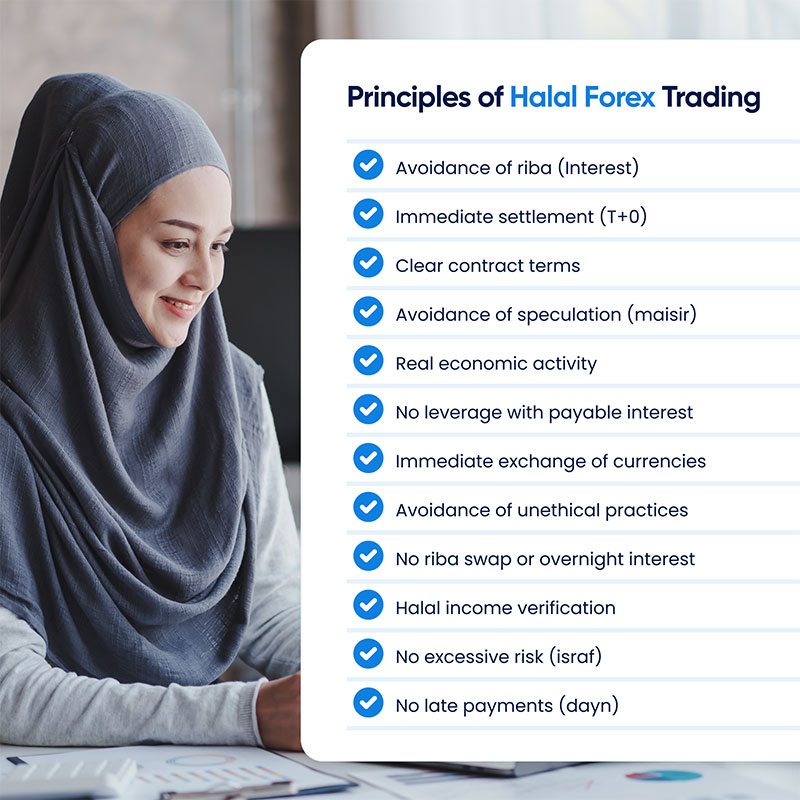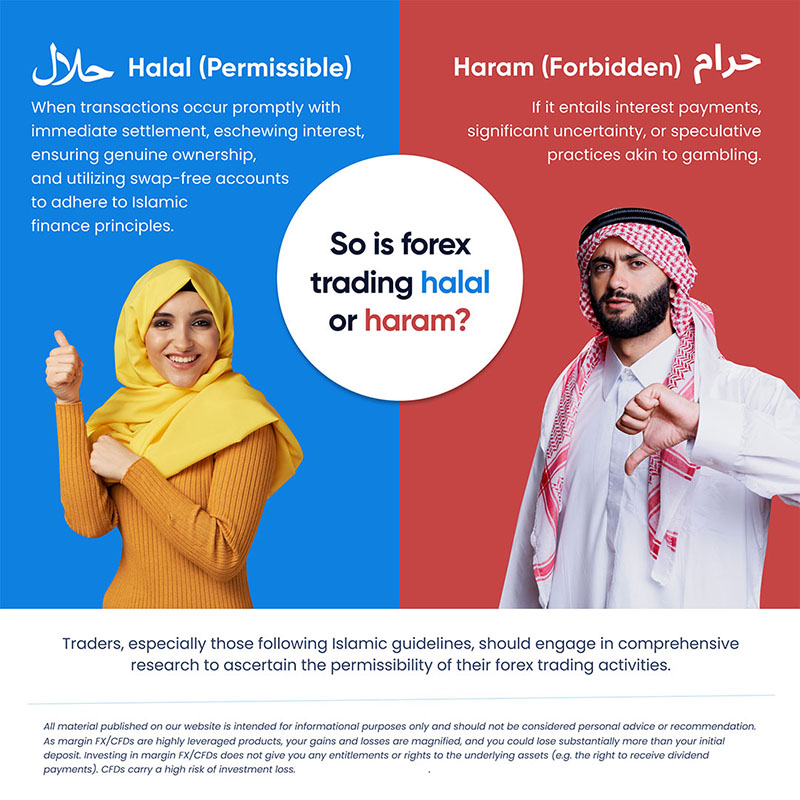Is Forex Haram: Exploring Ethical Financial Trading
Have you ever wondered if trading in the Forex market aligns with your beliefs? You’re not alone.
Many people, especially those who follow Islamic principles, grapple with the question: “Is Forex Haram? ” It’s a topic that not only stirs curiosity but also raises important ethical and religious considerations. As you navigate the complex world of currency trading, understanding the balance between financial opportunity and religious compliance becomes crucial.
We’ll explore the intricacies of Forex trading through the lens of Islamic teachings, helping you make informed decisions that resonate with your values. Let’s dive in and uncover the truths that could impact your trading journey and spiritual peace.
Forex Trading Basics
Forex is short for foreign exchange. It is a market where currencies are traded. People buy and sell different currencies here. Forex is the world’s largest financial market. It operates 24 hours a day. Trading involves predicting currency value changes.
Forex markets work globally, across different time zones. They open in Asia, Europe, and America. Trading is done online through brokers. Prices change due to news, events, and economic shifts. Liquidity is high, meaning trades happen fast. Currency pairs like USD/EUR are common.
Many people and groups trade in forex. Banks are major players. They handle large volumes of currency. Companies also trade to manage profits and losses. Governments trade to stabilize their currency. Individual traders use brokers to buy and sell.

Credit: m.youtube.com
Islamic Finance Principles
Shariah has clear finance rules. Justice and fairness guide decisions. Profits must be earned fairly. Contracts should be clear and honest. No cheating or hiding information allowed. Everyone must understand the deal. Honesty is key in Islamic finance.
Riba means interest in Islam. It is forbidden. Money should not earn more money by itself. Gharar means uncertainty or risk. Deals with uncertainty are not allowed. They can harm people. Clear and fair deals are important. People must know what they agree to.
Halal finance follows Islamic laws. Profits are made without interest. Investments must be ethical. Haram finance breaks Islamic rules. It includes interest and gambling. Bad investments harm society. Ethical practices are essential in Islamic finance.
Forex And Islamic Law
Forex trading may involve riba, which is interest. Riba is forbidden in Islam. Many Forex trades involve overnight fees. These fees can be interest-like. This makes Forex trading challenging for Muslims. They seek ways to avoid riba in trades.
Gharar means uncertainty or risk. Forex trading has high uncertainty. Prices can change quickly. This unpredictability can be seen as gharar. Islam discourages excessive risk or uncertainty. Traders must be cautious. They need to understand the risks involved.
Scholars have different views on Forex. Some say it is haram, or not allowed. Others believe it can be permissible if certain rules are followed. It is important to consult knowledgeable Islamic scholars. They can give guidance on Forex trading.
Ethical Considerations
Some people think about ethical investment. They want to do good things with money. They ask if Forex is ethical. They look at rules from their religion. They also look at rules from their family. Forex can be tricky. It is important to ask questions. It is important to know where money goes.
Ethical trading means making sure money is used wisely. People want to help others. They want to do the right thing. They think about how trading affects the world. They think about helping the poor. They think about saving the planet.
Forex trading can be good or bad. It depends on how you do it. Some traders follow ethical rules. They want to be honest. They want to be fair. They avoid cheating. They avoid lying. They make smart choices with money.
Some people look for other ways to trade. They try stocks. They try bonds. They try mutual funds. These can be safer. These can be more ethical. These can be better for the planet. People make choices based on their values.
Islamic Forex Accounts
Islamic Forex accounts follow special rules. These accounts avoid interest. This is called Riba. They operate under Sharia law. No overnight fees are charged. This is good for Muslim traders.
Islamic accounts have many benefits. They are interest-free. This helps Muslim traders stay true to their faith. But, there are challenges too. Some brokers may have higher fees. This can be hard for some traders.
| Islamic Accounts | Conventional Accounts |
|---|---|
| No interest charges | Charges interest |
| Follows Sharia law | Follows market rules |
| May have higher fees | Standard fees |

Credit: blueberrymarkets.com
Practical Steps For Muslim Traders
Finding a Halal broker is very important for Muslim traders. Check if the broker offers Islamic accounts. These accounts comply with Sharia laws. Look for brokers that do not charge interest or swaps. This ensures your trading is ethical and Sharia-compliant.
Examine if the market follows Islamic principles. Many markets have non-compliant practices. Check for haram activities before trading. You must avoid trading in prohibited sectors. This includes alcohol, gambling, and pork industries.
Access to educational resources is crucial. Learn about Forex trading and Islamic finance. Many websites offer free courses and articles. These help you understand market dynamics and Sharia law. Join forums and communities for advice and support.

Credit: blueberrymarkets.com
Frequently Asked Questions
What Is Forex Trading?
Forex trading is the exchange of currencies on a global market. It involves buying one currency while selling another. The market operates 24/7 and is influenced by global economic events. Traders aim to profit from fluctuations in currency values. It’s a popular market, but also risky.
Why Do Some Consider Forex Haram?
Some consider Forex haram due to interest and speculation. Islamic finance prohibits interest (riba) and excessive uncertainty (gharar). Forex trades might involve interest, such as overnight fees. Furthermore, speculative trading can resemble gambling, which is forbidden in Islam. However, some argue that with the right practices, it can be halal.
Are There Halal Alternatives To Forex Trading?
Yes, there are halal alternatives like Islamic Forex accounts. These accounts comply with Shariah law by avoiding interest. Islamic accounts offer swap-free trading, eliminating overnight interest fees. Additionally, ethical investments in stocks or commodities can align with Islamic principles. It’s essential to consult knowledgeable Islamic finance advisors.
How Can Forex Trading Be Made Halal?
Forex can be halal through specific practices. Use Islamic accounts that avoid interest and swap fees. Engage in ethical trading by avoiding excessive speculation. Ensure trades are based on tangible assets and involve clear contracts. Consulting with Islamic scholars can provide guidance on maintaining compliance with Shariah law.
Conclusion
Deciding if Forex is Haram depends on individual beliefs and interpretations. Some view it as permissible with certain conditions, while others see it as forbidden. Consulting a knowledgeable religious authority can provide clarity. Forex trading involves risks, and ethical considerations are crucial.
Understanding your values and financial goals is important. Always research and seek advice before making decisions. The debate on this topic continues, reflecting diverse perspectives. Stay informed and make choices that align with your principles. Ultimately, the decision rests with you.
Make it wisely and thoughtfully.